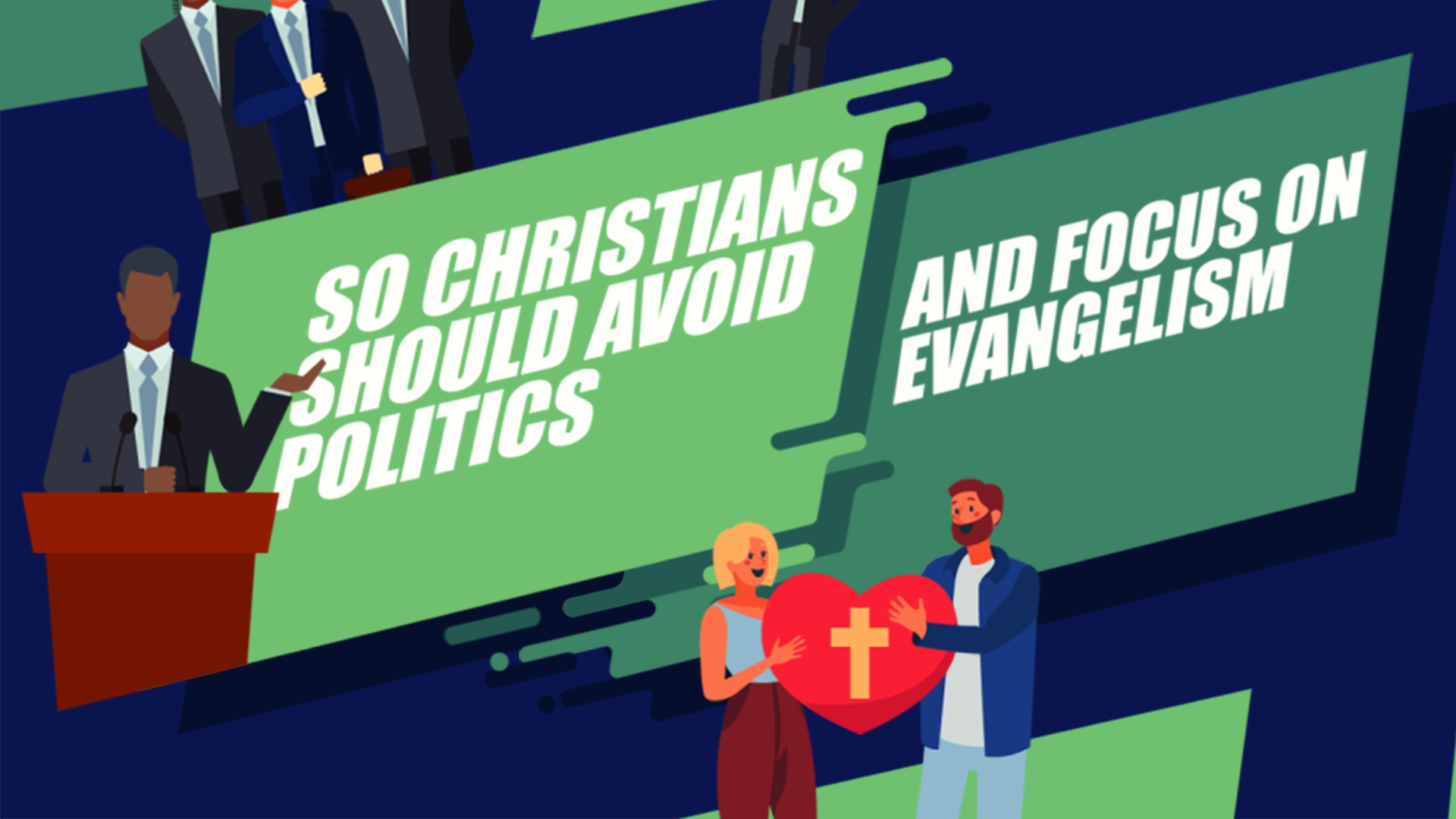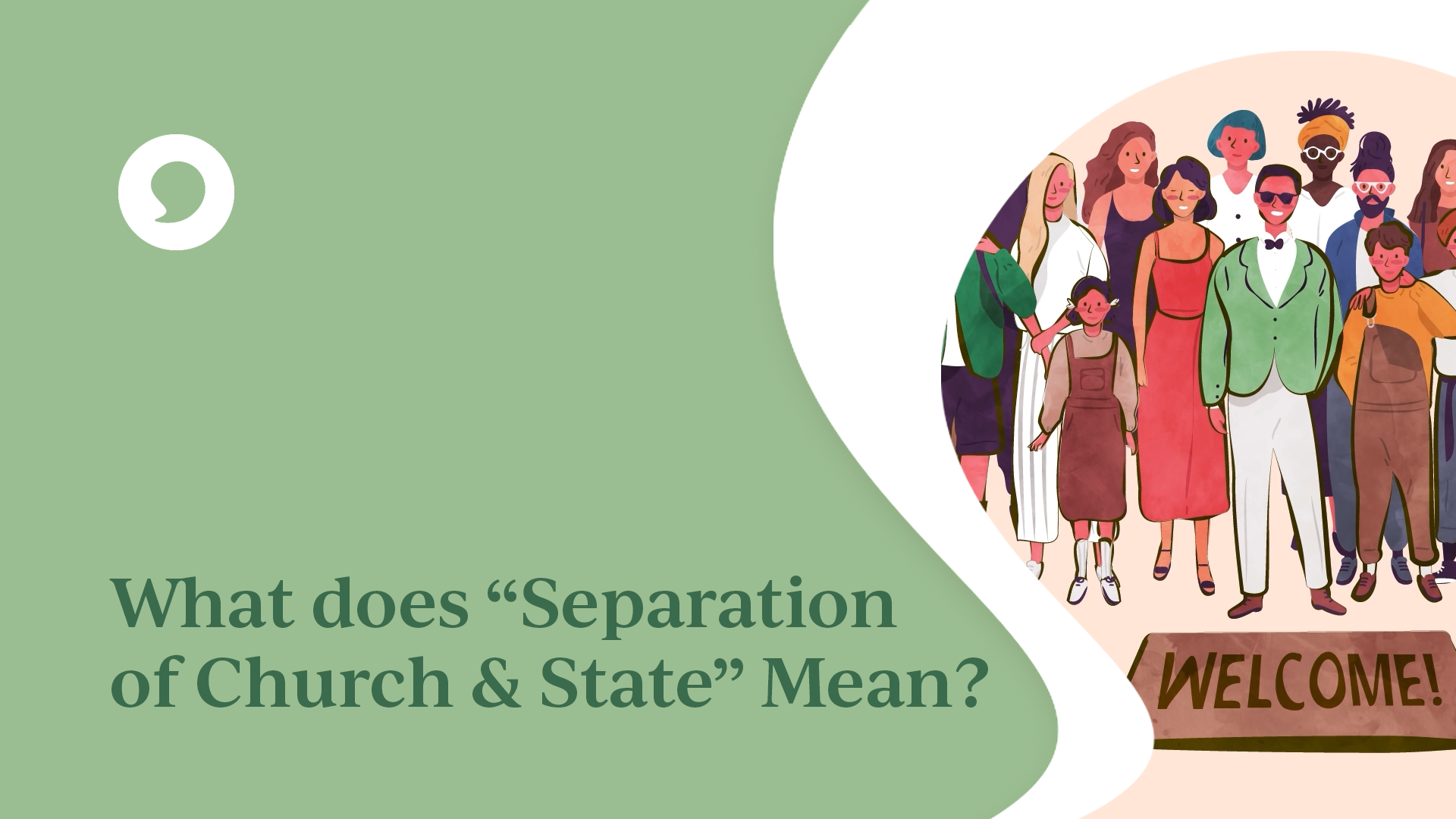2 min read
Should the Church Get Involved with Political Issues?
Joseph Backholm Nov 27, 2019 6:36:03 AM
You’re in a conversation and about religion and politics and someone says, “Churches shouldn’t get involved in political issues.”
What would you say?
Politics can be dirty, but the church should be holy. So a lot of people believe that churches should avoid “political issues”. Sometimes, the intention is to help the church avoid compromising situations. Other times, this is said in an attempt to keep the church out of the public square.
But is it biblical?
The next time you hear someone say churches should avoid “political issues”, here are three things to remember.
1. There’s no such thing as a “political issue”. Politics is simply a process.
2. If God cares, we should care. That’s what it means to be a Christian.
3. Avoiding “political issues” is a political.
decision. Doing what is popular is political. Doing what is right is biblical.
You’re in a conversation and about religion and politics and someone says, “Churches shouldn’t get involved in political issues.” What would you say? Politics can be dirty, but the church should be holy. So a lot of people believe that churches should avoid “political issues”. Sometimes, the intention is to help the church avoid compromising situations. Other times, this is said in an attempt to keep the church out of the public square. But is it biblical? The next time you hear someone say churches should avoid “political issues”, here are three things to remember. 1. There’s no such thing as a “political issue”. There are economic issues, environmental issues, criminal justice issues, educational issues, and transportation issues, but there are no political issues. Why? Because politics is not a category of issues. Politics is a process. The political process can be used to work through any issue as we attempt to order our lives together. What side of the road we drive on? What’s the definition of marriage? The fact that an issue is being debated in a political process should not determines whether Christians should care about it. Which leads to the second point. 2. If God cares about an issue, we should care about it too. The Bible doesn’t speak to which side of the road we drive on, but it does have a lot to say about marriage and the value of each life. For Christians, the critical question is not “is this political or not?” but “Does God care?” When He cares, we should care. That’s what we signed up for. Besides, churches that claim to avoid political issues rarely do so consistently. Many avoid the cultural hot potatoes like homosexuality or the definition of marriage, but speak loudly on issues like racial injustice and human trafficking, as they should! God cares about them all. But selective engagement suggests that our real concern is not about political involvement, but about offending cultural sensitivities. Which leads to the third point. 3. The choice to avoid “political issues” is itself a political decision. When churches selectively decide which biblical issues they will speak about and which they won’t speak about, they’re deciding which political issues matter. Is there anything more political than that? Churches don’t represent themselves. They represent Jesus. We shouldn’t speak or engage because we’re angry, and we should never be unkind. But avoiding conflict is not the example Jesus gave. Let’s review Next time someone tells you churches shouldn’t get involved in political issues remember. 1. There’s no such thing as a “political issue”. Politics is simply a process. 2. If God cares, we should care. That’s what it means to be a Christian. 3. Avoiding “political issues” is a political decision. Doing what is popular is political. Doing what is right is biblical.
 Read More
Read More




